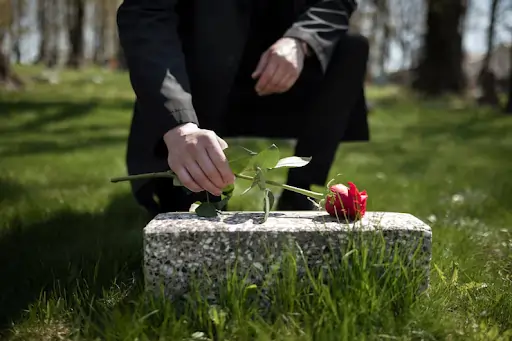Donating Your Body to Science After Death: A Complete Guide for Families
Nobody really wants to think about what happens after they die. But here’s the thing – someone has to make decisions on the process to follow after your death, and they’re usually expensive, stressful ones that come at the worst possible time.
Maybe you’ve heard about donating your body to science after death and wondered if it’s actually a real option. It is, and it’s becoming more common as people look for alternatives to traditional burial. The costs of funerals keep climbing, and frankly, some families just want their loved one’s death to mean something beyond grief and bills.
This isn’t like checking that little box on your driver’s license for organ donation. That’s completely different. Body donation means the whole body goes to medical schools or research facilities after death. Think medical students learning anatomy, researchers studying diseases, maybe testing new surgical techniques.
The organ donation thing happens fast – like within hours. Body donation? There’s more time. Days, actually. Which can be a relief when you’re trying to process everything else.
Who Actually Qualifies
Age doesn’t really matter much. Medical schools need bodies of different ages because, well, people come in all ages. Makes sense when you think about it.
But there are some catches. Certain diseases can disqualify you – things like HIV, hepatitis, other infectious stuff. Recent major surgeries might be a problem, too. And if someone was significantly overweight or underweight, that can sometimes complicate things for educational purposes.
Cancer doesn’t automatically rule you out, though. Depends on the program and what kind of research they’re doing. Some programs actually want to study bodies with a cancer history because it helps with medical research. Each place has its own rules, which are honestly kind of annoying when you’re trying to plan ahead.
Getting Registered Ahead of Time
Here’s where it gets crucial – you can’t just decide this after someone dies. Well, you can try, but it’s messier and might not work out.
Pre-registration involves paperwork. Medical history, consent forms, all that stuff. And your family needs to know about it. Some programs want family signatures too, which makes sense. Last thing anyone wants is family drama during a funeral.
The Anatomical Gift Act covers this stuff legally in different states. These laws basically make sure everyone’s protected – the person donating, their family, and the programs receiving bodies. It’s worth understanding these rules because they vary by state.
But here’s something that surprised me when I first looked into this – registering doesn’t guarantee they’ll accept the body. Programs can still say no based on how someone died, their medical condition, or what their current research needs are. So having a backup plan isn’t a bad idea.
What Actually Happens
When someone dies, the clock starts ticking. Usually, you need to contact the donation program within 24 hours. They handle transportation, which is one less thing families have to worry about.
The body goes to medical facilities where it might be used for months, sometimes years. Medical students are literally learning from it – studying anatomy in ways that computer simulations just can’t match. Surgeons practice techniques before trying them on living people.
Researchers might be investigating specific diseases, testing medical devices, or all sorts of things. Each body potentially trains dozens of future doctors and contributes to multiple research projects. One donation could impact patient care for years through all the medical professionals it helped train.
The Science Part
Medical schools really depend on body donations. You can’t learn human anatomy from textbooks and plastic models the same way. Students need hands-on experience with real human bodies to understand how everything actually works together.
Tissue engineering research is another area where donated bodies make a difference. Scientists are working on growing replacement organs and developing new treatments that could help millions of people down the road.
It’s pretty amazing when you think about it. That one decision to donate could end up helping train the surgeon who operates on someone’s grandkid twenty years from now.
Memorial Services and What Comes After
People often ask about funerals and memorial services. You can still have those. Most families have services right after death, before the body goes to the program.
The cremation part usually happens 1-3 years later, after the educational or research use is finished. Programs typically provide cremation at no cost and return the ashes to families if they want them. Some families scatter them somewhere meaningful, others keep urns.
Traditional funerals can cost thousands of dollars. Body donation eliminates most of those expenses while serving a purpose beyond just disposal of remains. It’s practical and meaningful at the same time.
Picking the Right Program
Not all programs are created equal. Some are run by accredited medical schools, others by private companies. Medical school students tend to have better ethical standards and oversight.
Good programs are transparent about their processes. They’ll explain what happens, answer questions honestly, and give you time to think things over. They don’t pressure you into quick decisions or make promises they can’t keep.
Watch out for programs that seem pushy or make everything sound too good to be true. Legitimate programs acknowledge that not everybody gets accepted, and they can’t guarantee anything.
The whole thing requires some serious family conversations. But for people who want their death to contribute to medical progress while potentially saving their family money, body donation offers something traditional burial doesn’t. It’s a way to keep helping people even after you’re gone.
Planning ahead makes the process smoother for everyone involved. Whether you’re thinking about it for yourself or helping family members explore options, understanding how body donation actually works takes some of the mystery and stress out of these difficult decisions.
Read more: How Cooperative Procurement Transforms Purchasing Power for Schools and Universities – SizeCrafter
Beaver Homes vs. Custom Builds A Comparison for Your Next Ontario Home
How Long Is 8 Inches? 7 Common Things That Are 8 Inches Long

